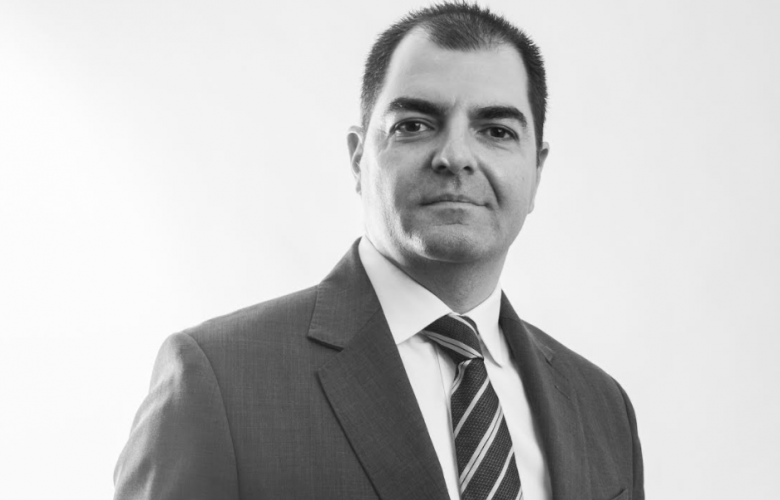Get to know Frank Sorgiovanni of JLL's Hotels and Hospitality Group
Contact
Get to know Frank Sorgiovanni of JLL's Hotels and Hospitality Group
Frank Sorgiovanni, Head of Research Asia Pacific at JLL's Hotels and Hospitality Group based in the Singapore office, gives SCHWARTZWILLIAMS his insights into the Asia Pacific Hotels industry.
Frank leads the regional research division and contributes to the Strategic Advisory and Investment Sales teams across Asia Pacific.
With over 16 years of property research analysis, consulting and corporate real estate advisory experience across Asia Pacific, Frank has a vast knowledge across most property sectors. Through previous roles and work appointments, he has acquired a broad range of property skills including market overviews; demand, supply and forecasting studies; strategic consulting and investment advice; highest and best use studies; acquisition, asset and development feasibility; workplace strategy, occupancy planning; tenant representation and economic impact assessments.
Geographical specialisation across Asia Pacific hospitality markets is wide with a particular focus on Singapore, Hong Kong, Macau, South Korea, Thailand, Vietnam, Malaysia, Indonesia and Australia. Frank also regularly provides market updates at JLL sponsored client events and external seminars throughout the region.
After commencing with Jones Lang LaSalle as a graduate in Perth in 1998, Frank relocated to Melbourne in 2001 where he spent 11 years working within property research, consulting, finance, advisory, and corporate real estate roles for companies including CBRE and ANZ Banking Corporation, before re-joining Jones Lang LaSalle’s Singapore office in 2013.
Frank holds a Bachelor of Commerce from Curtin University in Perth. There he majored in Property and Finance achieving honours.
How did you get into the hotels industry?
I have been working as a real estate analyst for 16 years and all along had a close eye on the performance of hotels and hospitality sectors in my reporting. After stints in Perth and Melbourne, I relocated five years ago to Singapore and commenced with JLL in the hotels and hospitality team exclusively focused on Asian research and consulting. It’s a very sexy sector in property and one I enjoy immensely working in and researching. There is always something interesting to discuss at dinner parties!
What are some of your career highlights from your time in the industry?
Obviously the travel. The highlight of my career is covering Asia as part of my research analyst remit. Until five years ago, I had never visited Japan, South Korea, Taiwan, Thailand, Cambodia, Laos or Malaysia. I have now visited each multiple times. I have completed a number of advisory assignments and regular speak at industry conferences and major hotel and hospitality events across the region. My number one early career goal was to work in Asia at some point and now five years later…
What are the biggest issues facing the hotel industry at the moment?
There are various “disruptors” affecting the hotel industry today. Hotel operators and investors have typically not been at the forefront of technology investment and these disruptors have made an impact on the traditional market. While the bread and butter of the industry, namely the business of accommodating guests in hotel rooms remains largely intact, new players have entered the foray in meaningful ways, with one of the most notable business models being home-sharing sites or alternative accommodation operators such as Airbnb and Homeaway. They are here to stay and hotel operators are continually looking at ways to adapt rather than go head to head.
How has the industry changed in the time you have been involved with it?
Obviously the first major change is the tremendous rise in the Chinese traveller and how that has opened up new tourism markets in Asia. We are also seeing a dramatic increase in the number of budget airlines which are driving huge growth in airlift, particularly out of Mainland China. Obviously the alternative accommodation operators such as Airbnb and its impact on hotel markets like Japan has been interesting to watch. Five years ago just serviced apartment operators and perhaps 3-star brands seemed most at risk or Airbnb – but now the whole hotel industry faces challenges.
What changes would you like to see over the next two to five years in the industry?
I’ve always said the Singapore Tourism Board is a world leader in promoting the city globally. But many countries in Asia aren’t as fortunate with much smaller tourism budgets. I would like to see government tourism agencies across many Asian countries, particularly some of the more undeveloped and emerging markets, investing more in tourism. The economic importance of tourism is commonly underappreciated and extends well beyond the core hospitality sector. I hope to see change over the medium term, particularly in Indochina countries.
What is your favourite hotel and holiday destination?
Not an easy question. Right now, I would say my favourite resort is definitely Mandapa, A Ritz Carlton Reserve in Ubud (Bali). My wife and I are foodies and we love to experience the food and beverage offer in most of our stays. Dinner at Kubu is a must in Mandapa. The arrival experience is spectacular with the rooms and resort layout exemplary. Quite simply they got it right. My favourite hotel (albeit still an urban resort perhaps?) is Aman Tokyo. Beautifully decorated rooms with excellent views over the Imperial Palace Gardens. The perfect mix of modern and historic Japan. An honourable mention must also go to Four Seasons Seoul. I love the speakeasy bar Charles H. that’s well hidden. My favourite Asian holiday destination is Japan. What’s not to love about Japan – it has everything!
See also:
Why affordable luxury hotels brands are heading to Asia
Hotel investment dominated by Australia and Hong Kong during first half of 2017







